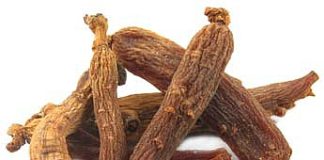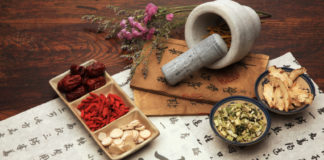Ginseng May Treat, Prevent Influenza and Respiratory Syncytial Virus (RSV)
Ginseng can help treat and prevent influenza and respiratory syncytial virus (RSV), a respiratory virus that infects the lungs and breathing passages, according to...
Cleveland Clinic and University Hospitals Embrace Chinese Herbal Therapies
Changes made to state laws have opened the door for certified herbal therapists to prescribe custom Chinese herbal therapy blends and traditional formulas to...
Herbal Treatment Improves Spinal Cord Injuries in Animal Study
A new study published in Restorative Neurology and Neuroscience demonstrates that Chinese herbal medicine Ji-Sui-Kang (JSK), given systemically for three weeks after injury in rats, improved...
Herbal Treatments for Postmenopausal Symptoms Recommended by Journal
Herbal Treatments for Postmenopausal Symptoms May Be Recommended as an Alternative to Hormone Replacement Therapy
Jan. 10, 2013 — Herbal and complementary medicines could be...
Chinese Medicine Yields Secrets: Atomic Mechanism of Two-Headed Molecule Derived from...
The mysterious inner workings of Chang Shan -- a Chinese herbal medicine used for thousands of years to treat fevers associated with malaria --...
Molecular Secrets Of Ancient Chinese Herbal Remedy Discovered
For roughly two thousand years, Chinese herbalists have treated Malaria using a root extract, commonly known as Chang Shan, from a type of hydrangea that grows in Tibet and Nepal. More recent studies suggest that halofuginone, a compound derived from this extract's bioactive ingredient, could be used to treat many autoimmune disorders as well.
He Shou Wu And Gray Hair
He Shou Wu (pronounced huh show woo) is a tuberous plant that's medicinal quality is found in its root. It is native to China and also found in Japan and Taiwan. This herb, sometimes referred to as Fo-Ti or by its Latin name Polygonum multiflorum, is revered in Chinese medicine for its anti-aging and longevity-promoting effects. He Shou Wu means "black haired Mr. He" and is named after an elderly Chinese man who reportedly took the herb to restore his youth and vitality and saw the return of his black hair. This capacity to restore a person's natural hair color is one of its most famous attributes.















